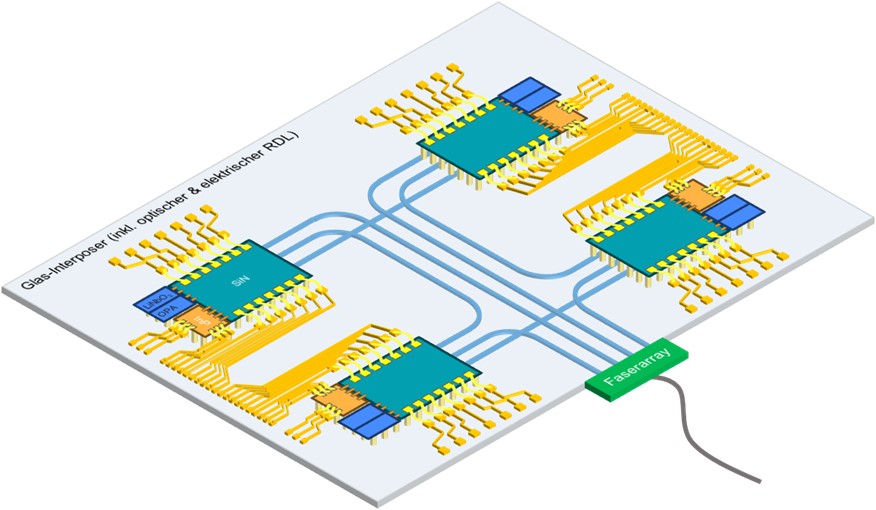Quantum computing uses the principles of quantum mechanics to perform complex calculations that are too demanding for conventional computers. In contrast to classical computers, which store data in bits, quantum computers use qubits that can assume several states simultaneously. This can lead to an exponential increase in computing capacity. However, the development of a universal quantum computer is currently hampered by three factors: Decoherence, fault tolerance and scalability of the construction process.
In order to physically realize such a system, an innovative integration and system concept is required that takes the above-mentioned factors into account. Current developments in chip-based photonic quantum circuits are often based on purely monolithic solutions. However, the limitation to a single material system makes it difficult to meet the stringent requirements of many quantum applications. Different optical components are often required, each of which fulfills a specific task and thus imposes specific physical conditions. A single material platform can only inadequately fulfill these tasks.
The aim of the project is to develop and validate essential sub-technologies for the integration, control and packaging of various components in order to build an innovative system for photonic quantum computing.
 Fraunhofer Institute for Reliability and Microintegration IZM
Fraunhofer Institute for Reliability and Microintegration IZM
